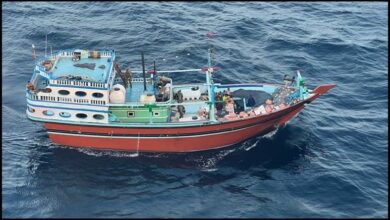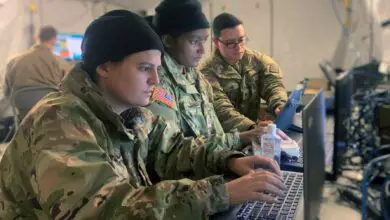
The world is changing, and along with it, relations between states. Not only has the spread of COVID-19 altered societies and ground economies to a standstill, but it has also put a temporary halt on the United States’ partnership efforts with other nations.
US Department of Defense personnel have abided by travel and training restrictions since late March. As cases in the US approach new highs, it is uncertain when overseas operations will resume as normal.
The post-pandemic environment, with states and their institutions still on edge, will require a new approach to security cooperation. This is especially true in the Sahel; a region already weighed down by fragility.
Security sector reform could benefit from a startup model: small scale, cost-effective, and innovative partnerships that require minimal investment but yield long term dividends towards achieving national security objectives.
The leap in this direction was already midstride before the virus began breaching international borders this winter.
Sahel Deployment of US Army Advisors
The Defense Secretary authorized the first Sahel deployment of US Army advisors from the 1st Security Force Assistance Brigade (SFAB) to Senegal in February to lead a 3-week vehicle maintenance course with the Senegalese army in their preparation for peacekeeping operations.
The 1st Security Force Assistance Brigade’s first mission in Africa is taking place in Senegal where US military advisers are providing “advanced training on maintaining and recovering their armored personnel carriers, the M36 Puma,” according to US Africa Command
— Ryan Browne (@rabrowne75) May 12, 2020
The addition of SFABs to the regular army is a recent undertaking. The 1st SFAB activated in 2018, and four other brigades have followed suit over the last two years. They represent a modern take on advisory support after lessons learned in Iraq and Afghanistan, fielding multifunctional teams that are scalable, adaptive, and uniquely trained in advising foreign security forces.
They are an inexpensive choice for building partner capacity, requiring minimal local support, especially in comparison to the price tag of largescale military sales programs of Abrams tanks or F-16s.
Great-Power Competition
The rise of the great-power competition with Russia and China has necessitated rethinking how the US will assure American influence in the years to come. This competition does not play out within Chinese and Russian borders, but in how these powers maneuver in proxy states.
The search for partners in Africa is a competitive market. Depending on the region, it is saturated with outside influence, especially in the dependent economies of resource-rich African countries that are tow lined to Beijing.
If the US hopes to win the contest over influence and overmatch its competitors on foreign soil, it must present its aspiring partners, or customers, with a new capability that can strengthen relations and create lasting stability.
Startup Approach
Startups in the business sense are characterized as new low-cost ventures aimed at answering a unique demand in a specialized market or industry. Fiscal and resource constraints often require innovative and flexible approaches to problem-solving, with employees performing multiple roles and functions under challenging circumstances.
Startups initially must be lean, efficient, savvy, and above all, add value to the sector where competition is occurring. The end goal is fostering sustainability so that other advantageous opportunities can be seized upon when presented.
The same exists in the security sector. Through the use of 12-person SFAB advisor teams to spearhead mil-to-mil partnerships in Sahelian countries, security startups could create sustainable relations and enhance American influence.
Cooperation in Security Sector
These multifunctional advisor teams are lightweight, expeditionary, and easy to deploy in austere environments. A single SFAB can field 35 teams, with each team member in the 12-person configuration bringing to the table different expertise, allowing for flexibility in adapting to the needs of the customer, whether those needs require advisory support on tactics, logistics, communications, medicine, or other warfighting tasks.
This better enables the Department of Defense to deliver a unique capability to our partners that is not replicated by our competitors.
Army advisors today are also better trained than their predecessors. They have endured a selection process and an advisor academy, ensuring that the product received by the partnered force is value added to the country’s security sector. This lays the foundation for a long-term sustainable partnership.
Cooperation in the security sector could also lead to cooperation opportunities with the US in other areas, whether economic development, humanitarian aid, or improving education.
The Senegalese Case
The type of partnership created could take on many forms, depending on what fits the host country’s demand. In Senegal, the seed was planted with the maintenance course, but SFAB advisors received additional inquiries for future bilateral exchanges.
The Senegalese army is a professional and disciplined force but struggles with supply management and currently faces unfamiliar threats from violent extremist organizations in neighboring states. It is difficult for Senegal to sustain soldiers for prolonged operations, and peacekeepers in Mali have encountered complex IEDs employed by Al-Qaeda in the Islamic Maghreb.
UN vehicle completely destroyed by IED in Mali. What an image. Attacks in Aguelhok killed 1 MINUSMA peacekeeper, wounded 8 others. https://t.co/Ap1TRXvdqz
— Evan Cinq-Mars (@ecinqmars) October 4, 2016
Advisors outlined how tailored programs could address both security issues, by embedding experts at each echelon in the supply network and by sharing lessons learned from Afghanistan to help peacekeepers defeat IEDs.
Tailored approaches in each Sahelian country could overtime set up a network of hubs for regional stability, as the security sectors in each country are continuously improved and multilateral cooperation allows countries to address transnational threats.
Evidence of this approach is apparent in the successes of the G5 Sahel Joint Force, comprised of Burkina Faso, Chad, Mali, Mauritania, and Niger. However, more inclusion is necessary, especially when nontypical challenges such as climate change and resource scarcity extend beyond West Africa.
Increasing Stability in Africa
There is plenty of opportunity for more American involvement in Africa, to create a blanket of stability from Djibouti to Dakar, and to counter China’s “String of Pearls” strategy, which is already encasing India and parts of East Africa in a network of well-placed military and commercial installations.
The 1st SFAB’s deployment to Senegal in March was cut short a couple of days due to COVID-19, but as normality eventually returns, security startups across the Sahel could be a useful way of reinvigorating American influence on the continent, and of answering a unique demand of partnership from our allies.
The lasting effects of these partnerships could increase stability on both sides of the Atlantic, as security threats are reduced abroad, and stability for fragile states translates to stability for Americans at home. This is of particular importance since ISIS is actively reconsolidating in Africa after failing to establish a caliphate in Iraq and Syria.
Though small in size, security startups could provide America with the foothold needed to dominate in the great-power competition, especially in a region that is already succumbing to adverse outside influence.

David Carl is Foreign Area Officer in the US Army with a regional focus in Sub-Saharan Africa.
Disclaimer: The views and opinions expressed here are those of the author and do not necessarily reflect the editorial position of The Defense Post.
The Defense Post aims to publish a wide range of high-quality opinion and analysis from a diverse array of people – do you want to send us yours? Click here to submit an op-ed.











